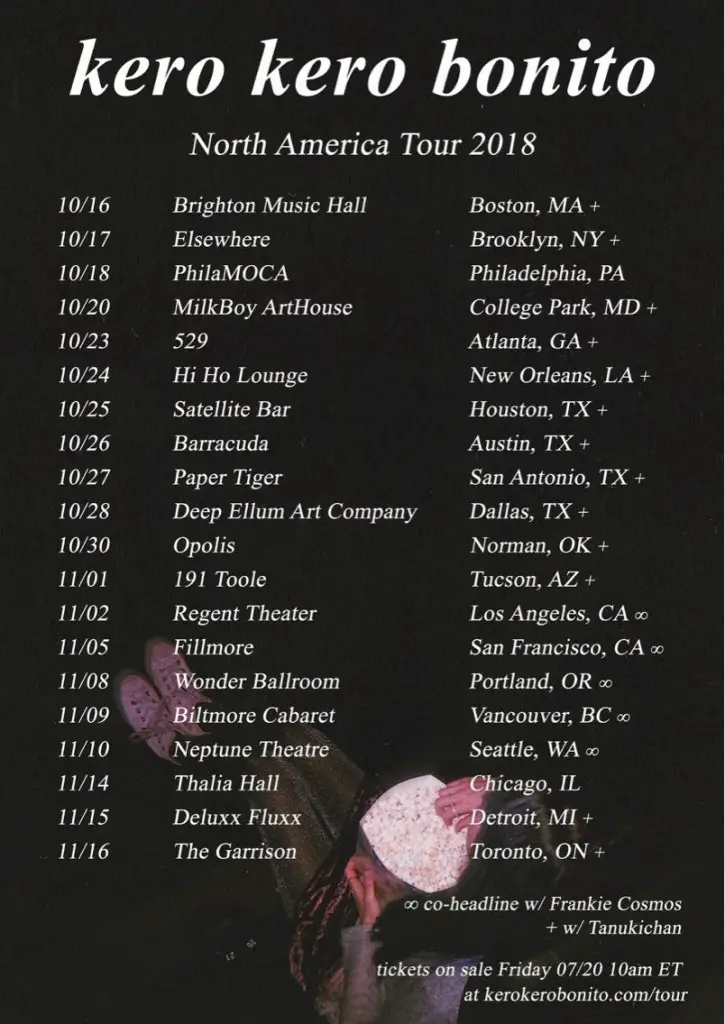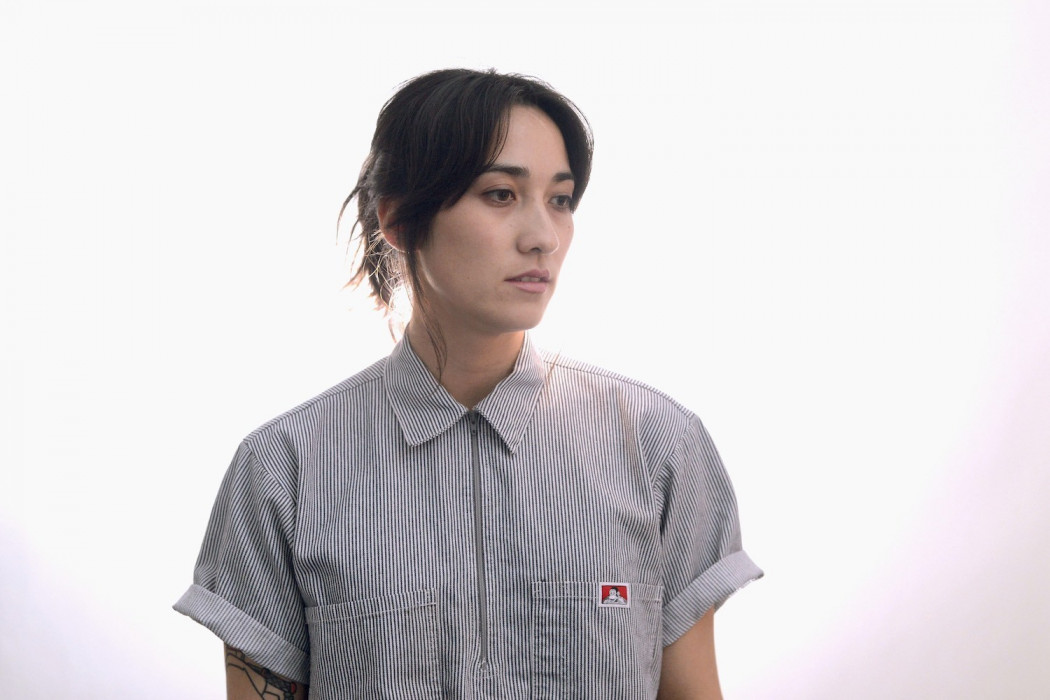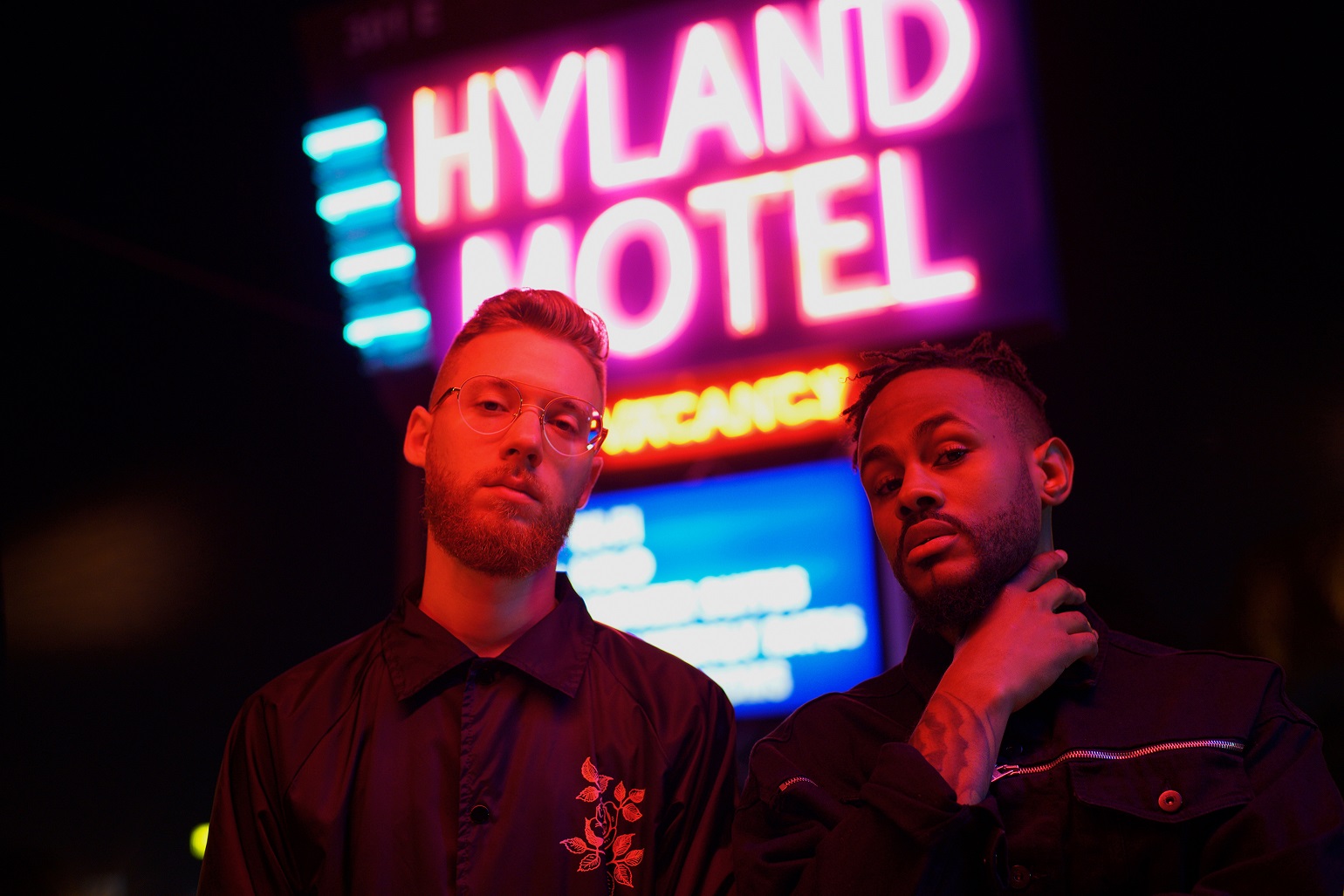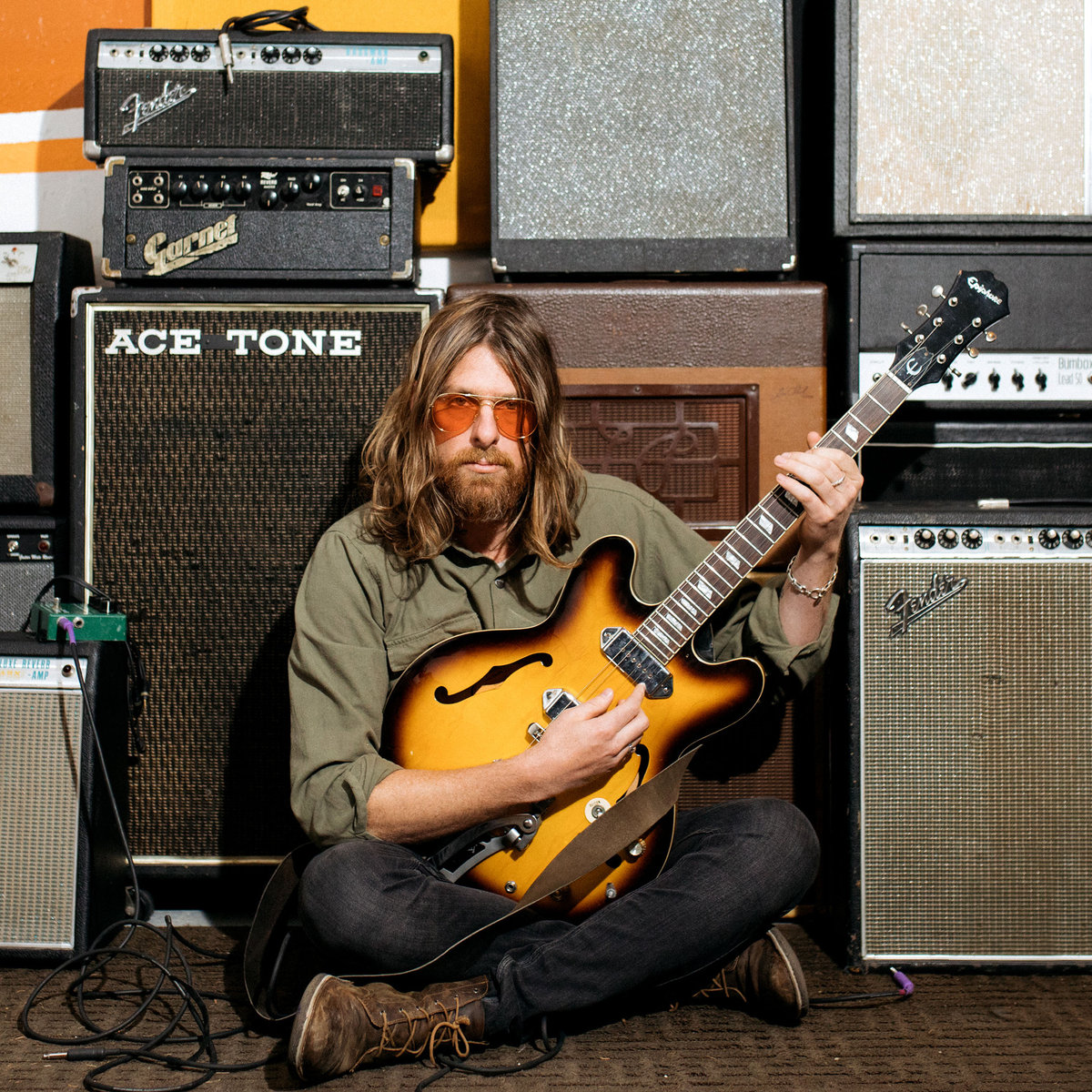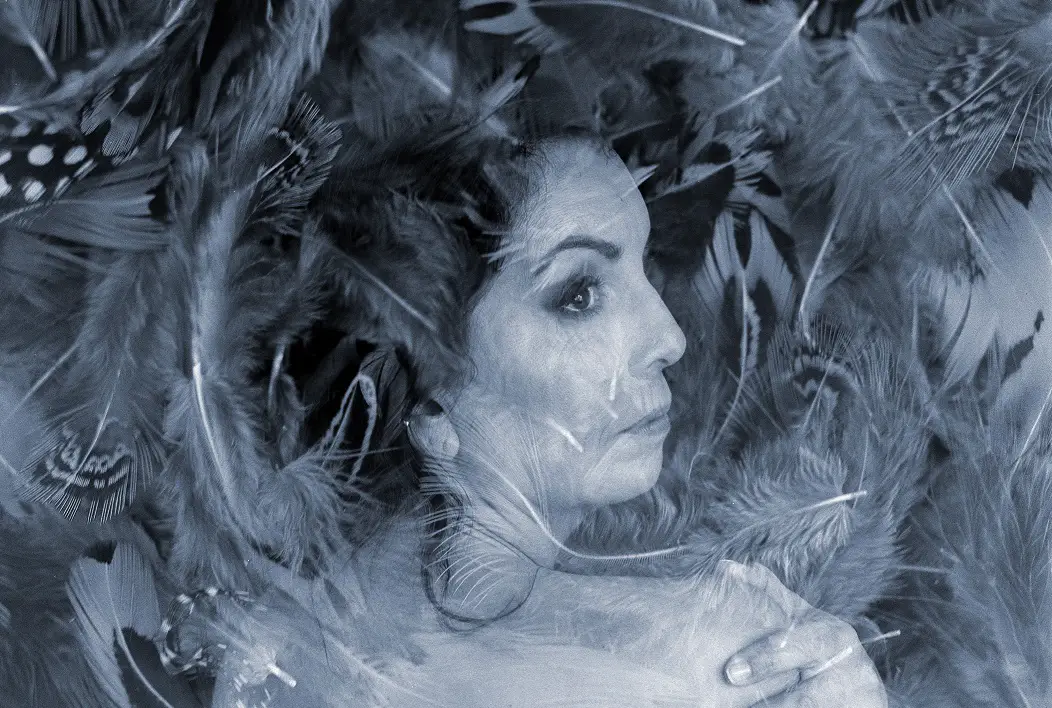San Francisco’s Tanukichan tells Atwood Magazine about her debut album, Sundays, its fuzzy shoegaze sound, and the influence Chaz Bear had on the record.
— —
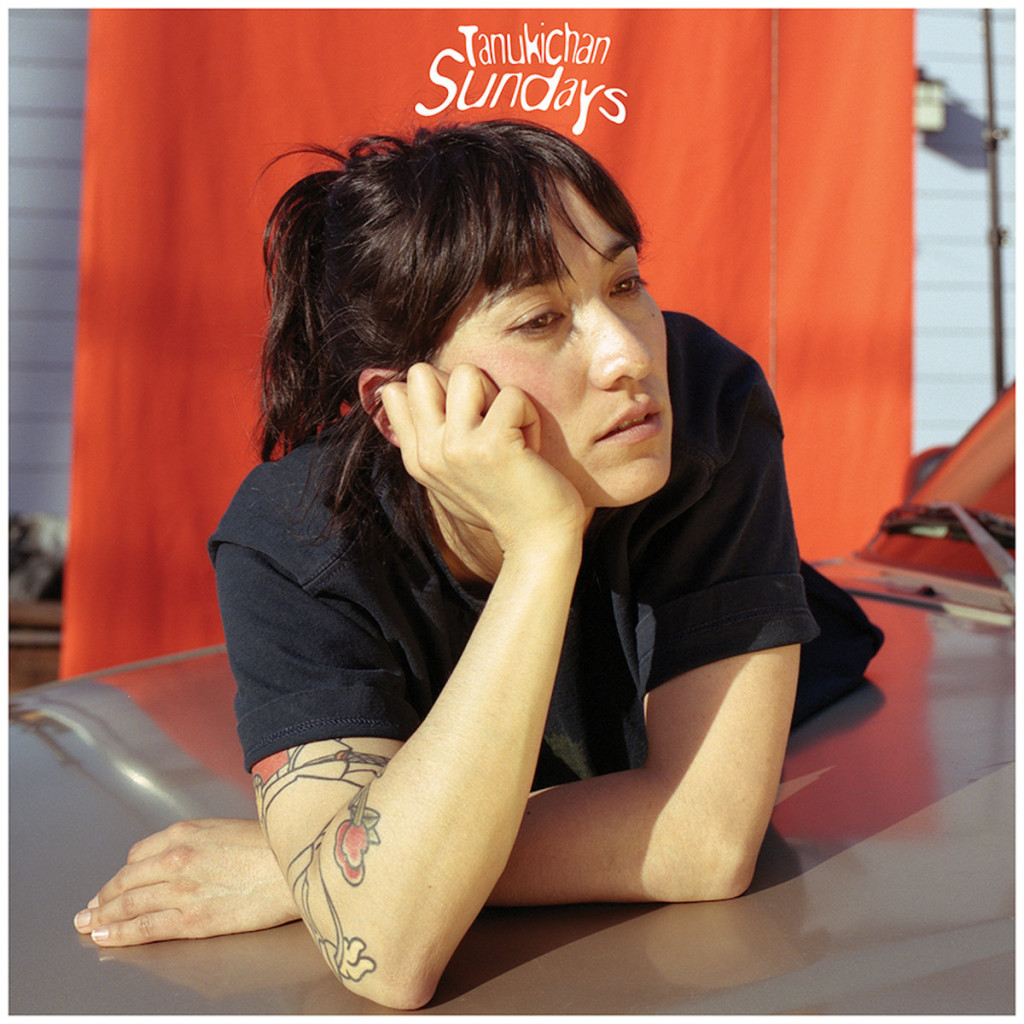
Sundays start with a slow-burning and impactful synth, until that moment’s pierced by Hannah van Loon’s soft voice: “You know I’d do anything / don’t you know I try my best?“
San Francisco-based artist Hannah Van Loon just released her debut album Sundays under the moniker Tanukichan, and with it crafted not only a body of work, but also an atmosphere and a whole world. It’s an album best listened to when you want to drift by your day dreamily, as you’ll inevitably get sucked into her pastel-coloured and fuzzy haze. Out July 13, 2018 via Company Records, Sundays was produced by Chaz Bear of Toro y Moi, van Loon’s friend, who also plays on the record and helped her hone her sound into the authentic, heavier, and fuzzier blend of shoegaze that is presented on Sundays.
van Loon sat down with Atwood Magazine to talk about her debut body of work, how it came together and how it changed, and what Chaz Bear brought to the album. She’s currently on a headlining tour to promote the album, and on the fall is going on the road to support Kero Kero Bonito all across America. Be sure to check out Sundays and see Tanukichan on the road, and allow yourself to be sucked into her beautiful world.
Listen: Sundays – Tanukichan
MEET TANUKICHAN
Atwood Magazine: Hi, Hannah! How are you?
Hannah van Loon: I’m good, how are you?
I’m great. How’s California?
Hannah van Loon: Sunny and beautiful. Right now I’m just out walking my dog at the park.
Aww that’s so cute!
Hannah van Loon: Yeah, he’s great.
First of all, congratulations on the album. It’s such a cool body of work, and the more you pay attention to it, the better it gets. I really like it.
Hannah van Loon: Aw, thank you.
What are the main themes the album touches on?
Hannah van Loon: Ooh this is a hard one but people always ask me. Let’s see. Well, it’s kind of broad. I guess it’s about relationships, not just significant others but family and friends, and navigating those, as well as life. It’s sort of a reflection on the meaning of life (laughs) in various scenarios.
Were the songs written across a large span of time?
Hannah van Loon: I wrote them for the record, over the span of a year, a year and a half.
Cool! I imagine you wrote more than the songs that ended up on the album. How did you choose the tracklist of the album and the order of the songs?
Hannah van Loon: Yeah I wrote a bunch more songs, but either felt like they didn’t fit sonically or were something I didn’t feel as strongly about. And the tracklist just happened at the end.
Was there something specific that you wanted to paint when you chose the order of the songs?
Hannah van Loon: It was just the flow, but I think it worked out really nicely. It starts a little bit poppier and the more shoegaze side, then it starts to open up and have different sounds.
The video for “Lazy Love” is so intimate and beautiful. What was the process of making this video like?
Hannah van Loon: That one I worked with Brendan Nakahara and he helped with some of the graphic design for the album. The concept of the video was that I wanted it to feel bright but also lonely. As we worked on it we realised it had this 90s grunge vibe to it, so we twisted it in that direction, and we wanted to make visuals that felt a little bit trippy to emphasise the psychedelic elements of the music.
Watch: “Lazy Love” – Tanukichan
I love the contrast between the abrasive guitars and your very soft voice on the whole album, but particularly on “Lazy Love.” How do you think this helps get across the meaning of the song?
Hannah van Loon: I think it does work really well with the song’s vibe, where I want the vocals to be present and heard, like I do have a really soft voice, and I think the contrast just works and brings an edge that I feel like I’m writing about, topics that are sad or things like that. But then to contrast it, my voice is really soft, sometimes I hear it and I’m like “I sound like a little girl!” (laughs). But I feel like it rounds out the picture in a good way, and I want my voice to be present but the instruments and melodic elements are really important as well. Having those moments where my voice feels overwhelmed by other things just mimics being overwhelmed by emotion that i can feel.
I love how “Bitter Medicine” comes as a more lighthearted track sandwiched between heavier songs. What’s the story behind that song?
Hannah van Loon: “Bitter Medicine” is about people who I’m fairly close to that are going through a rough time, for whatever reason things are crumbling around them, and for me it was like reflections of that, a fear of it happening in my life. You can prepare for things, but you also have to live your life and the choices you make lead you to different places. Reflections on that feeling where you’re like “I can help you, but this is your responsibility and your decisions led you to this point”. You have to accept that, and maybe one day I’ll be in the same situation, so just accepting it and embracing whatever comes.
On “The Blue Sky” you finish the song by repeating, “And all I wanted was...” as the song fades out. Why did you decide to finish the song with this sense of anticipation?
Hannah van Loon: I wanted to do it like that because I felt like it was more about the process than the end result. It’s just the feeling of longing and I guess I felt like it might be a little cliché to end it with one thing (laughs) unless it was really perfect. I think that’s the point of the song too, maybe it doesn’t matter what you want, but the fact that you want is something important and a feeling that everyone shares.
Do you think that’s a good idea to live by? Like it doesn’t matter where you want to go with something, it just matters that you want to do it and whatever happens, happens.
Hannah van Loon: Yeah, I think that’s super important.
Why did you call the album Sundays - was it more about the title track or is that day of the week special for you?
Hannah van Loon: It represents the feeling of the album. Sundays, what comes to mind is something sunny, and you wake up really late, or maybe you were out kind of late last night and it’s a reflective day. So it just felt right to me.
I don’t really like Sundays. They’re often too reflective and too slow and moody for me.
Hannah van Loon: It’s kind of intense actually, huh.
If you’re going to have a mental breakdown I feel like Sundays are the days you’re most prone to having one just because you have nothing going on.
Hannah van Loon: Oh that’s so true (laughs). I think that kind of works with the album too, though. It’s like reflections on a mental breakdown (laughs).
That’s a completely different take on the album, I like it. I feel like “This Time” closes the album pointing it in a different sonic direction than the rest. Why did you have this song close the album? Does it point to what your music is going to sound like in the future?
Hannah van Loon: A lot of the demo versions of the tracks that I recorded for this album have live drums. A lot of the songs changed and they have drum machines, but you know, it’s the last song, it can kind of be different. Most of the tracks are me and Chaz [Bear, of Toro y Moi], but on that track one of my friends played drums and I had spent a lot of time working on the album with him as well, so in that way it felt good to close the album with this song. And it feels lighthearted to me, the last word is a little light.
How do you think the album presents you as an artist?
Hannah van Loon: Hmmm… I feel cohesive to me, in. good way, it’s my first full-length and I’m pretty proud of it. It represents a good part of my musical inclinations as well as just my mindset towards life a little bit, where it’s vague and kind of general but in my mind it feels philosophical. Which, now that I think about it, is a lot of how I go about the world and see things which feels like a cool thing to put out in the world. I have a strong classical rock background and in some ways it feeds into that, which I like a lot.
How did the songs on this record change from when you initially wrote them to how they sound in their final recorded versions?
Hannah van Loon: Mostly sonically. A lot of them had live drums to begin with, but then when I started working with Chaz we decided to use drum machines so that changed things pretty drastically.
On that note, what do you think Chaz Bear brought to the album?
Hannah van Loon: He brought a lot. I think a lot of the sounds have to do with his playing and his ideas. He brought a lot of the heavier elements, like the synth sounds and stuff.
Last question: What’s the ideal situation in which to listen to your album?
Hannah van Loon: Ooh. Sunday afternoon, hanging out with friends on a rooftop with a bottle of beer.
— —
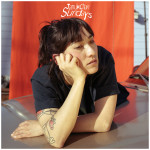
Connect with Tanukichan on
Facebook, Instagram, Twitter
Discover new music on Atwood Magazine
? © Jacob Romero
:: Stream Tanukichan ::
Tanukichan Tour
